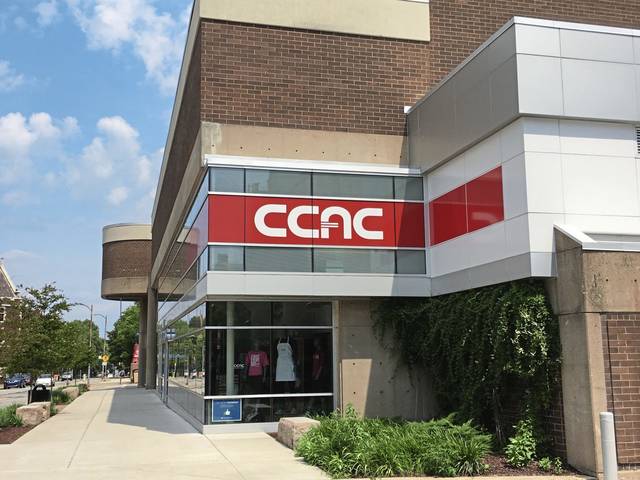https://development.triblive.com/local/regional/community-colleges-expect-an-enrollment-spike-because-of-pandemic/
Community colleges expect an enrollment spike because of pandemic

Community colleges may become a more viable option for students this fall, as the covid-19 pandemic continues to alter various aspects of higher education.
In Western Pennsylvania, schools are preparing for a myriad of possibilities but remain uncertain exactly how the pandemic will affect them, said Stuart Blacklaw, provost at the Community College of Allegheny County.
High school seniors across the country are rethinking their college decisions as many universities – including the University of Pittsburgh – prepare for a fall semester that will be at least partially online. Under these circumstances, Blacklaw said his office is planning for a steady flow of enrollments as the fall semester approaches.
Normally, the college sees a huge jump in enrollment on the day fall registration opens up, but Blacklaw said that wasn’t the case this year. Registrations are trickling in slowly. Students are asking more questions and trying to figure out what classes will actually look like, he said.
“Students are sort of in the moment right now,” Blacklaw said. “They’re being a little more cautious, so it’s creeping up a little slowly.”
Likewise, Sydney Beeler, vice president of enrollment management at Westmoreland County Community College, said while there is “no playbook” for operating during a pandemic, history can speak for itself. Enrollment at community colleges typically has an inverse relationship with the economy, she said. When the economy declines, enrollment goes up.
Enrollment at Westmoreland County Community College has struggled with a declining population of high school graduates. Beeler said she is preparing for a scenario in which registrations spike this fall.
She’s also taking into account other factors. Community colleges have a higher percentage of nontraditional students dealing with families and layoffs. Many students are essential workers who must juggle additional hours with schoolwork. It’s still too early to say fall enrollment won’t be steady with previous years, or even decline, Beeler said.
“We run the gamut,” she said.
Some guidance counselors say community college will be a better option if restrictions to public spaces and online learning continue into the fall. Lindsay Schoeneberger, a guidance counselor at Kiski Area High School, predicted many students will be drawn to community college to ease their family financial burden.
“It is an affordable option – it always has been,” she said. “But I think in uncertain times, financially, it might help students feel a little bit more secure.”
Schoeneberger has been helping students remotely for the past month. A lot of her students had already made their college plans before the pandemic gained traction, but the restrictions and the uncertainty have still been “
disruptive to the senior class, she said.
That’s why even beyond feasibility, community colleges may be more appealing for their proximity to home – something students may not have valued before, but see as an asset during a health crisis.
“This has been very traumatic for all people, and there is some comfort in being with your family and staying where you’re familiar,” Schoeneberger said.
Despite the initial slowness in registrations, Blacklaw expects more students who were planning to attend four-year residential colleges to rethink their decision and opt for CCAC. The school is adjusting its marketing efforts for the pandemic as well, Blacklaw said. They’re trying to show students they are an inexpensive option—especially if all colleges are forced online and students are forced to stay home either way.
The college has had to make many adjustments to its trade programs and hands-on courses, but Blacklaw said at least half of instruction was already online, so the transition was remarkably smooth. Without residence halls, students didn’t have to alter their living situations while balancing schoolwork.
Compared to their counterparts attending residential and out-of-state schools, CCAC students have had to endure relatively little change, Blacklaw said.
“As unsettling as it is for the students, I think our students are finding it much more like what they were already experiencing than somebody who was a thousand miles away from home, living on their own, suddenly thrown back,” he said.
In a way, covid-19 has highlighted the existing benefits of attending community college, leaders say, especially as colleges in general have struggled to maintain enrollment levels in recent years. Fall enrollment at many of the region’s four-year universities has declined in the last four years, according to data from the U.S. Department of Education. This is especially true for schools within the Pennsylvania State System of Higher Education — nearby California University, Clarion University and Indiana University of Pennsylvania each showed declining total enrollment between 7% and 17% from 2015 to 2018, the last year data was available. Enrollment on branch campuses for Penn State and the University of Pittsburgh have also declined.
Blacklaw said students visiting CCAC for summer courses are always surprised by the quality of education they find. Beeler said she puts Westmoreland’s faculty and instruction “second to none.”
Copyright ©2026— Trib Total Media, LLC (TribLIVE.com)
